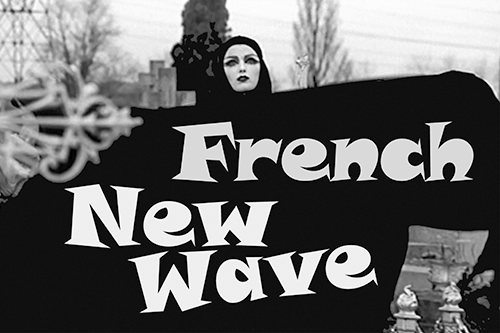
Jean-Paul Sartre and Albert Camus proposed that human freedom is based on the possibility of a deliberate and conscious choice in which humans are not limited or determined by cultural force. Sartre also noted ” Man is a self-creating being who is not initially endowed with a character and goals”, “but must choose them by acts of pure decision…[and make] existential leaps into being” (Sartre 1943) The text book explains Sartre’s point of view was acknowledging life as a temporary thing and understanding it, to live authentically and reach a persons own ultimate destiny.
In 1954, a young film critic wrote an article explaining that French Cinema had a certain tendency. The tendency was screenwriters who manufactured well wrought scenarios based on popular French novels. The text wrote, films could win prizes at film festivals but wasn’t facing the issues on social and political problems post war. The French new wave was about to revolutionize cinema and bring the creativity back to the big screen. The movement was started by a group of young film critics by the names of Francois Truffaut, Jean-Luc Godard, Claude Chabrol, Eric Rohmer and Jacques Rivette, their improvisational approach to acting, directing and scriptwriting, revolutionized film production in Western Europe during 1959.

Films that relied on traditional stage techniques were seen as a sterile creative movement. This was do to a new style from breaking away from the traditional techniques of narrative and focus more on surreal stream-of-consciousness approach. The directors would use a personal style when filming, the text book says, ” The director would use the camera as a pen to express his own thoughts and ideas independent of a given scenario, as opposed to adopting a style from literature or the theater.” This is really striving for a new and creative way for film making, it breaks away from only the popular literature and brings a unique prospective on film making. The chapter stated this could discover a new audiovisual language that abandons the classical style.
Attributions: Chapters 16, 17 An Introduction to World Cinema

I likes how you covered The French New Wave and our readings for the book really well in your blog post. I do think you really could have used a paragraph or too about the main screening “Bonnie and Clyde.” Your post is a bit short this could really help lengthen it and then you could talk about The French New Wave and how it influenced the film. I’m sure our professor would agree that a large part of this class is tying films to their historical context so remember that for next week. Otherwise really well done!
LikeLike